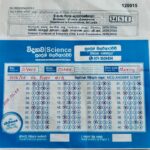The Value of Micro-credentials: How Online Courses Can Enhance Your Degree and Employability
In today’s job market, a bachelor’s or master’s degree alone is often not enough to make you stand out to employers. While your main qualification demonstrates your knowledge in a broader subject area, companies want specialised workers who apply directly to open positions. This is where micro-credentials come in handy.
What Are Micro-credentials? Short online courses
Micro-credentials, also known as digital badges or nano-degrees, are short online courses that allow you to get certified in specific skills and knowledge areas. For example, you could take a 6-8 week course and receive a micro-credential in data analysis, social media marketing, UI/UX design, business analytics, project management, and much more. These bite-sized learning programs are offered on platforms like
- Coursera (https://www.coursera.org/),
- edX (https://www.edx.org/), Udacity (https://www.udacity.com/catalog/all/any-price/any-school/any-skill/any-difficulty/any-duration/any-type/most-popular/page-1),
- Alison (https://alison.com/en) and
- Udemy (https://www.udemy.com/).
🔍 Topics Covered:
- 0:00 start
- 0:09 Less jobs for degrees
- 1:06 CIMA, Chartered & IT Courses
- 1:35 TOEFL, IELTS
- 1:50 Benefits of Micro-credentials
- 3:09 Global Platforms – MOOCs
- 4:17 Cost
- 5:18 Get hard skills and soft skills
- 6:20 What are micro-credentials
- 8:12 How to put them in your Resume/ CV?
- 11:25 Most popular MOOCs in the world
- 15:44 Moratuwa U – Full Stack developer
- 16:24 Bonus tips
Benefits of Micro-credentials
Pursuing micro-credentials provides several benefits for university students and graduates:
- They demonstrate relevant job skills and knowledge to make you more employable. Micro-credentials allow you to fill in any gaps that a general bachelor’s degree may miss.
- They help you stand out from applicants with just a degree certificate. With a micro-credential, you show motivation to constantly develop professionally.
- They let you explore potential careers before fully committing through internships or jobs. You can test out different fields through affordable courses.
- Top providers like Coursera and edX offer courses developed by leading universities and companies worldwide. This adds prestige and credibility.
- Micro-credentials allow university students and graduates to showcase niche skills and knowledge to employers. With the right choices, they can demonstrate your dedication to lifelong learning and give you a competitive edge in the job market.
Choosing the Right Micro-credentials
With so many options for micro-credentials, how do you strategically select the best ones?
- Identify high-demand skills in your target industry and look for related micro-credentials. For example, data analysis skills for a business role.
- Study job postings to see what capabilities employers are looking for. Then, match courses accordingly.
- Pick skills complementary to your major. For an engineering student, project management makes sense.
- Focus on both hard skills (like programming and knowledge of organic chemistry) and soft skills (like communication and teamwork).
- Consider completing at least onw micro-credentials per year alongside your main university degree.
Here are some top platforms to browse for micro-credential options:
Global Platforms – MOOCs – Massive Open Online Courses
- Coursera: Offers courses from leading universities and companies worldwide. Many are free or low cost.
- edX: Features micro-credentials and courses created by institutions like MIT and Harvard.
- Udemy: Boasts an extensive library of affordable courses in topics like IT, design, business, and more.
- Udacity: Specializes in tech-focused micro-credentials backed by industry.
- FutureLearn: Connects you to courses from top UK and international universities.
Popular Long-Term Courses in Sri Lanka:
- Management, Accounting, Marketing, HR (CIMA, CIM, Chartered Accountancy, IPM)
- IT/ Computing (BIT, BCS)
- Science (Ichem)
- English for foreign degrees (IELTS, TOEFL)
- Free Full Stack Developer course offered by the University of Moratuwa developed with the help of DP education
Micro-credentials vs. Traditional Degrees:
- Shorter, more flexible timespans.
- Narrowly focused.
Can you put them in your Resume?
- Absolutely! List them under “Education and Professional Development.”
- Display your digital badges and certificates online. eg. You can put them on your LinkedIn profile (Read: How to add a digital badge to LinkedIn?)
Eg. Eranda Indunil – Undergraduate at University of Sri Jayewardeneprua – LinkedIn portfolio of certificates and badges

Delivery Mechanisms:
- Face-to-face
- Blended
- Fully online
Most popular MOOCs (massive open online courses) in the world
- 1. Google Data Analytics Professional Certificate (Coursera): https://www.coursera.org/professional-certificates/google-data-analytics
- 2. IBM Professional Certificate in Digital Marketing (Coursera): https://www.coursera.org/specializations/digital-marketing
- 3. The Complete Cyber Security Course – Masterclass (Udemy): https://www.udemy.com/course/ethicalhackingcourse/
- 4. Python for Everybody Specialization (University of Michigan – Coursera): https://www.coursera.org/specializations/python
- 5. The Art of Project Management (Udemy): https://www.udemy.com/course/mastering-the-art-of-project-management/
- 6. Introduction to UX Design (Google – Coursera): https://www.coursera.org/professional-certificates/google-ux-design
- 7. Google Cloud Platform Professional Cloud Architect Certification (Coursera): https://www.coursera.org/professional-certificates/gcp-cloud-architect
- 8. The Fundamentals of Digital Marketing Specialization (University of Illinois at Urbana-Champaign – Coursera): https://www.coursera.org/specializations/digital-marketing
- 9. Excel – Data Analysis with PivotTables (Microsoft – edX): https://www.edx.org/learn/data-analysis/microsoft-introduction-to-data-analysis-using-excel
- 10. Learn the Fundamentals of SQL (edX): https://www.edx.org/learn/sql
Globally popular Short courses MOOCs for Biological Science (Chemistry, Physics, Mathematics) undergrads
- 1. Bioinformatics Foundations: Genomics and DNA Analysis (Johns Hopkins University – Coursera): https://www.coursera.org/specializations/genomic-data-science
- 2. Introduction to Human Physiology (Duke University – Coursera): https://www.coursera.org/learn/physiology
- 3. Scientific Python for Data Analysis and Visualization (University of Michigan – Coursera): https://www.coursera.org/specializations/data-science-python
- 4. Microbiome Science and Technology: Principles and Applications (Wageningen University & Research – edX): https://www.edx.org/learn/nutrition/wageningen-university-research-nutrition-and-health-human-microbiome
- 5. Biotechnology: Principles and Processes (MIT OpenCourseware – YouTube): https://m.youtube.com/watch?v=UhHQs6ZcK_g
- 6. Introduction to Epidemiology: Methods and Applications (Utrecht University – edX): https://www.edx.org/learn/epidemiology
- 7. Science Communication: Principles and Practice (University of Queensland – edX): https://www.edx.org/learn/journalism/israelx-science-communication
- 8. Introduction to Environmental Toxicology (Oregon State University – Coursera): https://uit.oregonstate.edu/
- 9. Biostatistics for Public Health (Johns Hopkins University – Coursera): https://www.coursera.org/specializations/biostatistics-public-health
- 10. Introduction to Neuroscience (Harvard University – edX): https://www.edx.org/xseries/harvardx-fundamentals-of-neuroscience
Courses for Agriculture, Environmental Science and Forestry Undergraduates
Environmental Science:
- Climate Change and Sustainability Certificate: https://www.edx.org/learn/climate-change
- Geospatial Analytics for Environmental Decision Making: https://www.coursera.org/specializations/gis
- Environmental Monitoring and Data Analysis: https://ou.ac.lk/cessd/
- Water Treatment and Supply Technologies: https://www.edx.org/learn/water/tsinghua-university-water-and-wastewater-treatment-engineering-physicochemical-technology-shui-chu-li-gong-cheng-wu-li-hua-xue-fang-fa
Agriculture:
- Precision Agriculture Techniques and Applications: https://www.wur.nl/en/dossiers/file/dossier-precision-agriculture.htm
- Sustainable Food Systems: From Farm to Fork: https://www.edx.org/school/eit-food
- Organic Agriculture: Methods and Principles: https://www.futurelearn.com/info/courses/future-food/0/steps/66896
- Crop Science: Production and Management: https://www.edx.org/learn/agriculture
Forestry:
- Sustainable Forest Management: https://www.edx.org/learn/ecosystems/sdg-academy-from-the-ground-up-managing-and-preserving-our-terrestrial-ecosystems
- Urban Forestry and Green Infrastructure: https://www.coursera.org/lecture/wood-science/managing-forests-LEDWh
Short courses on Business Analytics:
- Introduction to Business Analytics (University of Pennsylvania – Coursera): Gain a fundamental understanding of business analytics concepts, tools, and applications. Valuable for aspiring analysts, data scientists, and business professionals. https://www.coursera.org/courses?query=wharton
- Google Data Analytics Professional Certificate (Coursera): Learn essential data analysis skills from Google experts, covering data cleaning, visualization, and modelling. Useful for data analysts, scientists, and marketers. https://www.coursera.org/professional-certificates/google-data-analytics
Courses on Project Management:
- The Fundamentals of Project Management (Google – edX): Master the core principles of project management, including planning, execution, and control. Beneficial for aspiring project managers, team leaders, and entrepreneurs. https://www.edx.org/certificates/professional-certificate/adelaidex-fundamentals-of-project-management
- The Art of Project Management (Udemy): Develop practical skills for managing projects effectively, covering communication, resource allocation, and risk management. Valuable for anyone involved in project-based work. https://www.udemy.com/course/mastering-the-art-of-project-management/
Courses on Business Finance:
- Corporate Finance Fundamentals (MIT OpenCourseware – YouTube): Understand the essential concepts of corporate finance, including valuation, capital budgeting, and financial analysis. Relevant for aspiring finance professionals, entrepreneurs, and business analysts. https://m.youtube.com/watch?v=HdHlfiOAJyE
- Financial Markets (Yale University – Coursera): Explore the workings of financial markets, covering asset classes, risk management, and investment strategies. Valuable for aspiring investment bankers, financial analysts, and anyone interested in global finance. https://www.coursera.org/learn/financial-markets-global
Bonus Tips:
- Consider combining courses across different areas to build a well-rounded skillset.
- Look for courses with industry certifications or recognized credentials.
- Read reviews and compare platforms before enrolling.
- Utilize student forums and communities for networking and support.
These are just starting points. Remember to research further based on your specific needs and interests. Happy learning!






Leave a Reply